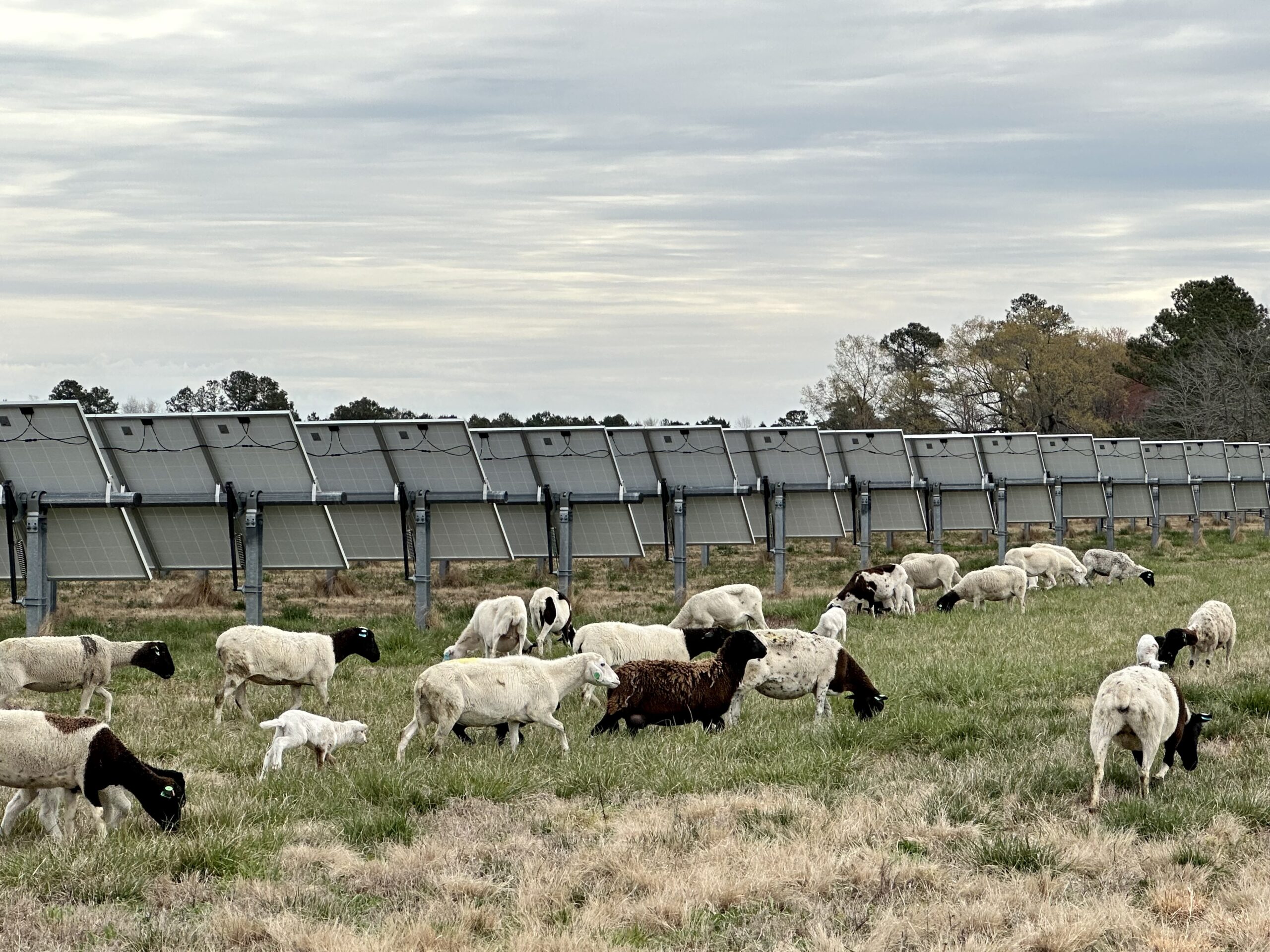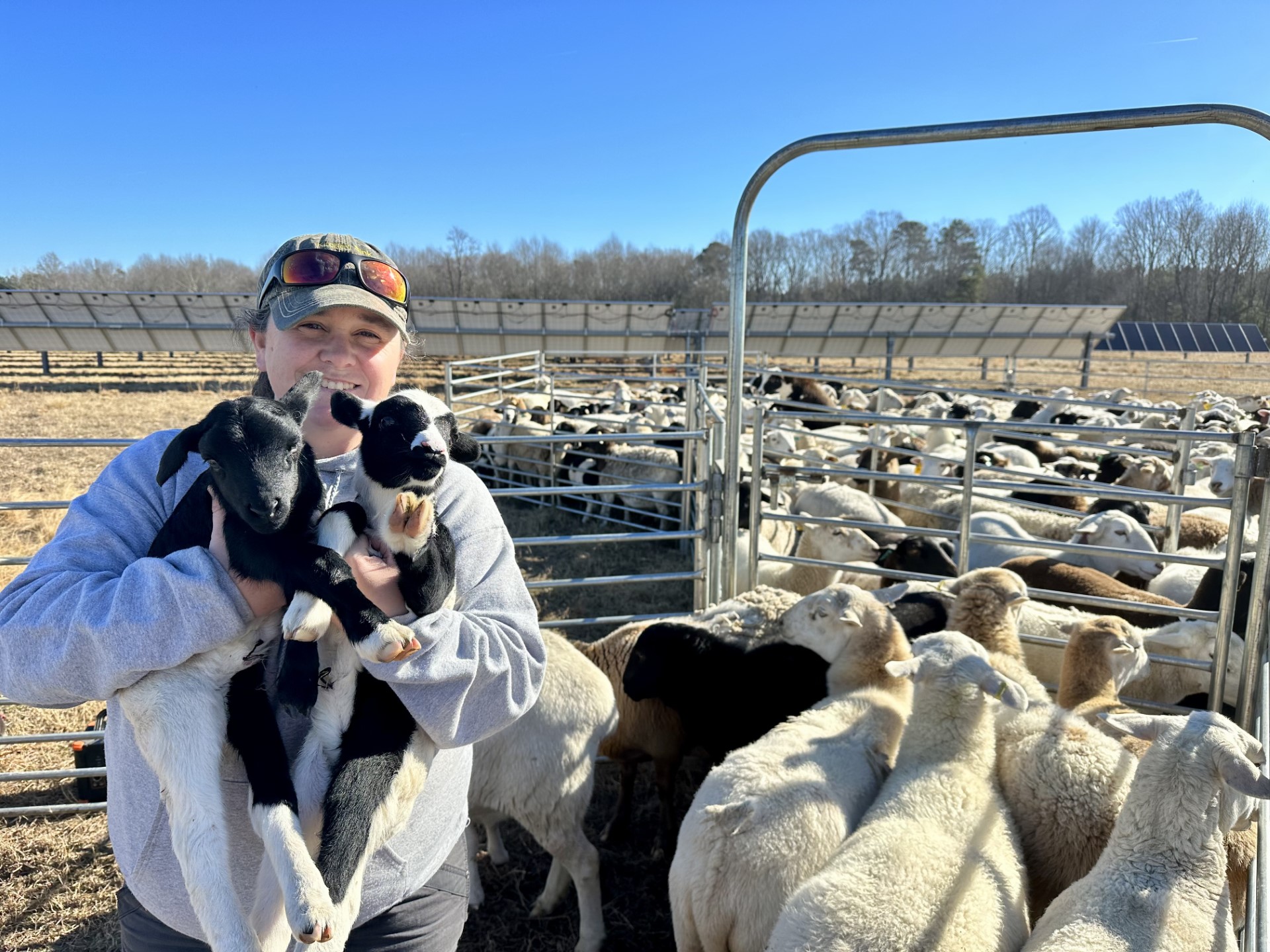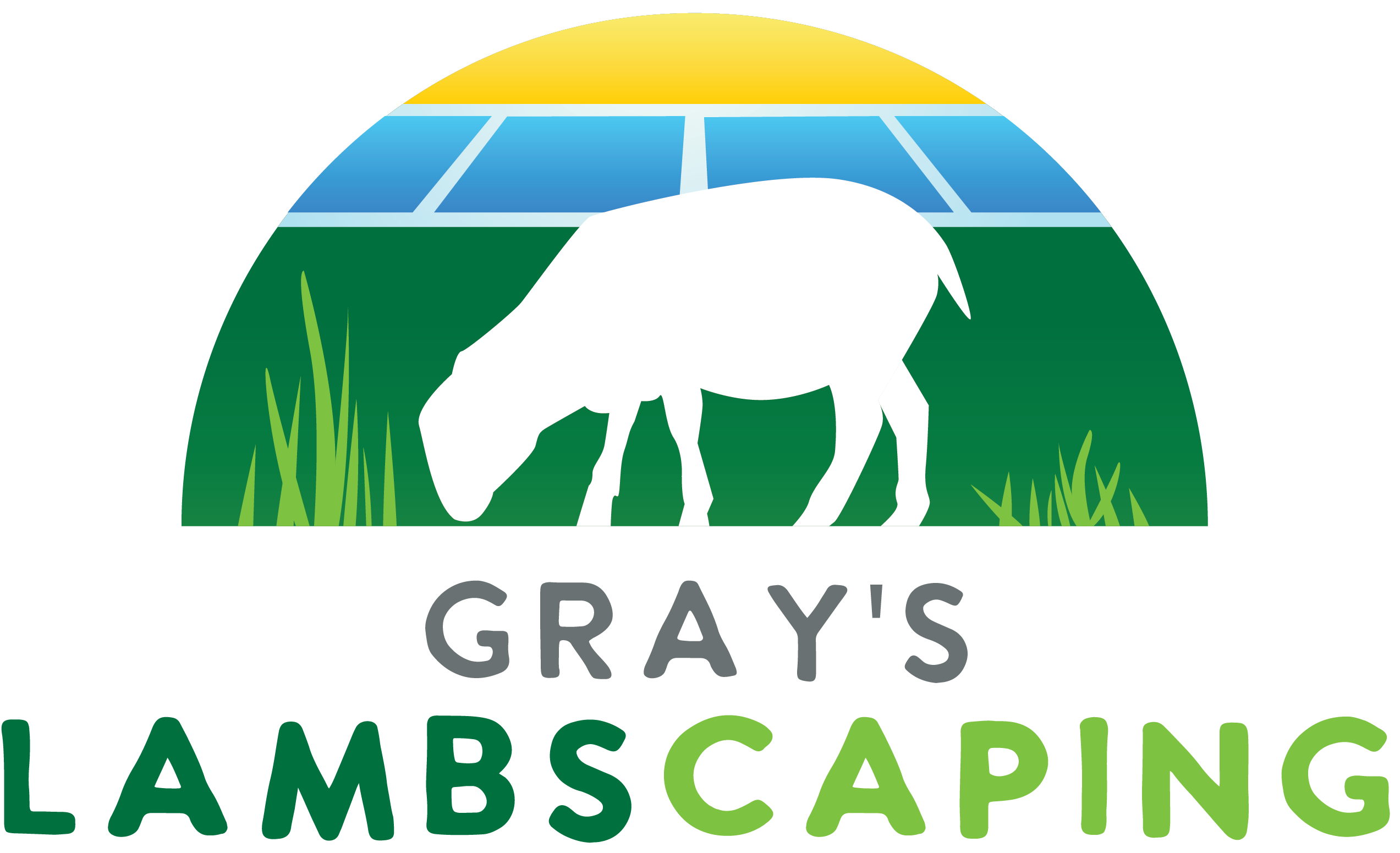Choosing the Right Working Dogs for Solar Grazing Sites
By: Jess Gray · May 5, 2024 · 6 min
Solar grazing combines renewable energy with traditional farming, creating a sustainable agriculture system that’s as innovative as it is effective. Our canine partners are at the heart of this success—specially trained dogs that manage and safeguard the flock. Livestock guardian dogs provide constant protection against predators, maintaining a safe environment for the sheep. At the same time, collies expertly manage herd movements with precision, ensuring the animals graze evenly across the land.
Livestock Guardian Dogs: The Flock’s Protectors
Our livestock guardian dogs, primarily Anatolian Shepherds and Great Pyrenees, form the cornerstone of our flock’s defense. These dogs are not just vigilant and powerful but also deeply nurturing, which makes them perfect for their protective roles.
Characteristics and Lifestyle of Livestock Guardian Working Dogs:
- Round-the-Clock Vigilance: Livestock guardian dogs blend seamlessly with the sheep, providing constant protection and building a strong bond that boosts their guardian efficiency.
- Agility and Resilience: Despite their fluffy exterior, these dogs are both agile and sturdy, ensuring peak performance at all times.
- Self-Sufficient Feeding: A specially designed food bin allows them to eat on their schedule, independently meeting their high-energy needs.
- Proactive Defense: Always alert, these dogs increase their vocalization and protective behaviors when potential threats are near, positioning themselves strategically to best protect the flock.
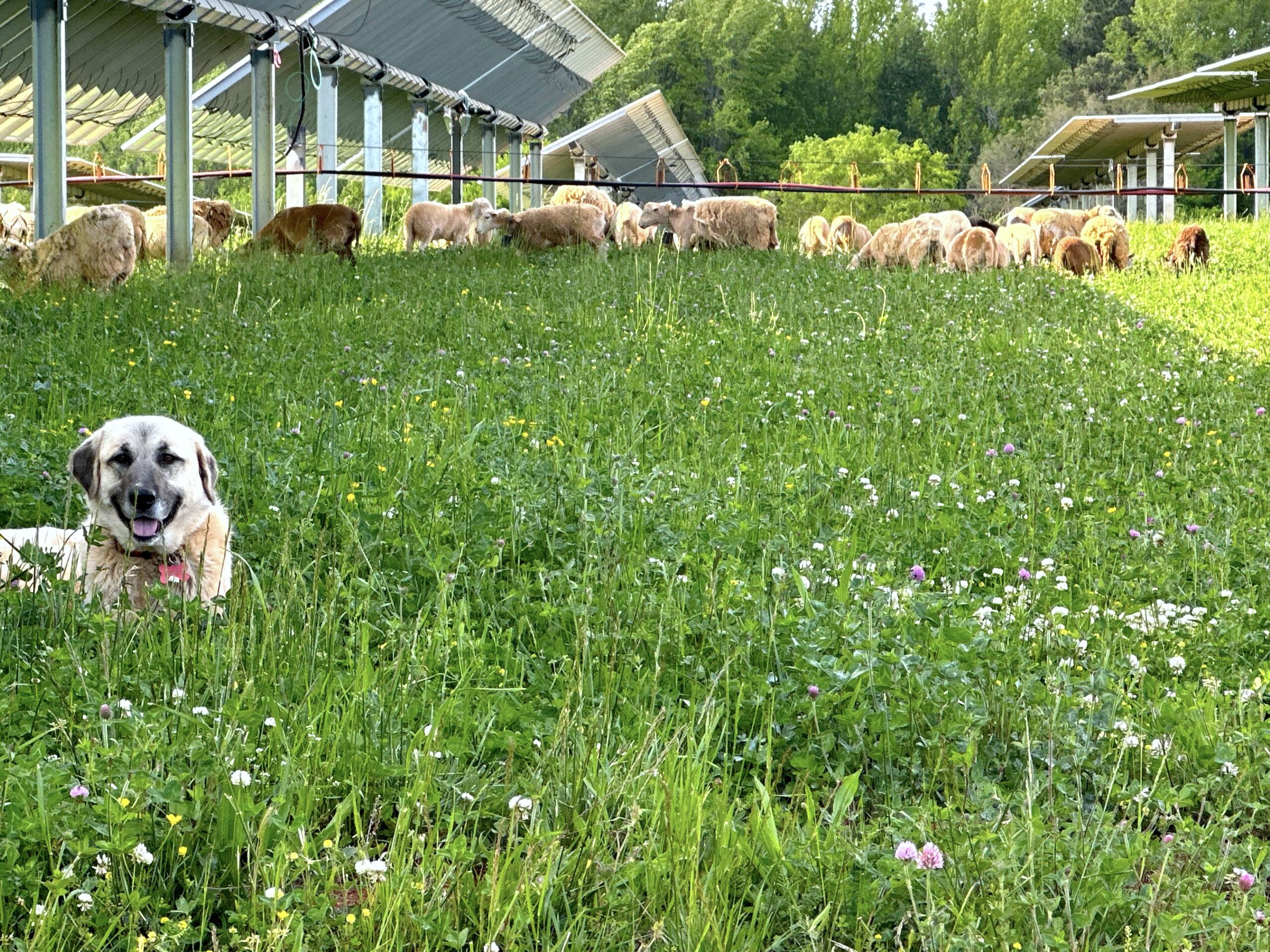
Collie Working Dogs: Masters of Herding
While livestock guardian dogs focus on protection, collies excel in managing and moving the flock with precision. Known for their sharp intelligence and nimbleness, collies are crucial for tasks like relocating sheep or organizing them for health checks.
Roles and Traits of Collie Dogs:
- Specialized Skills: Each collie brings unique abilities to the team—some are adept at handling tight spaces, while others thrive in managing broad sweeps across open fields.
- Collaboration with Handlers: A collie’s effectiveness is significantly boosted by a handler’s understanding of the dog’s skills and how to apply them in various situations best.
- Adaptive Living Arrangements: Collies stay with their handlers and are brought to the site as needed, which suits their active and engaged nature.
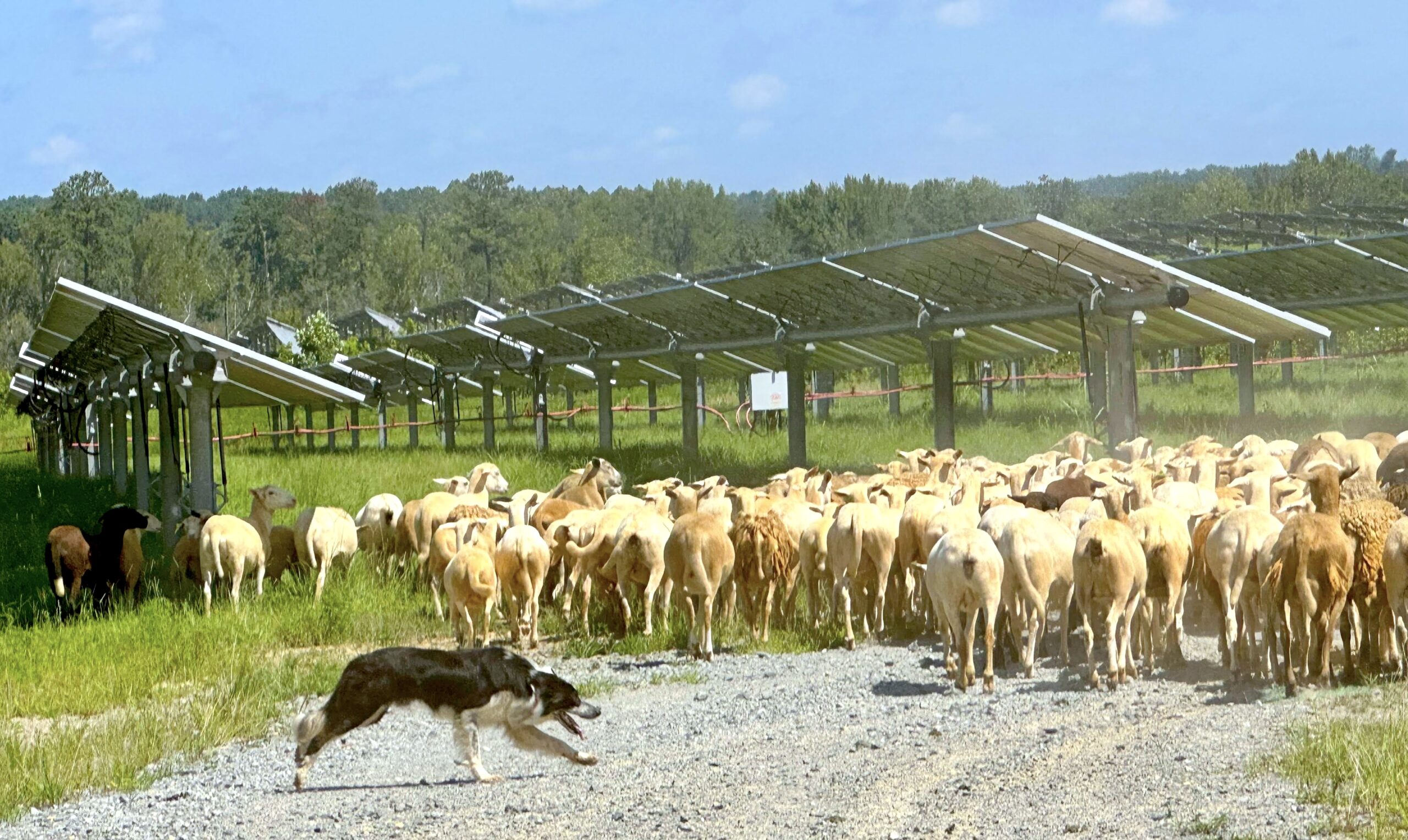
How We Effectively Manage Our Canine Teams
Successful management of these dogs goes beyond recognizing their roles. It involves a commitment to continuous training, regular veterinary health checks, and nurturing a strong, trusting bond. We ensure access to ample food, water, and comfortable rest areas, which is essential for livestock guardian dogs. For collies, we analyze and acknowledge each dog’s individual strengths and adjust our herding strategies to maximize their potential.
Training Techniques We Use for Working Dogs
Training dogs to work your solar grazing project takes time and attention, but it’s well worth the investment. We typically start training for livestock guardian dogs when they’re around 8 weeks old, focusing on flock socialization. Introducing your guardian puppies to your sheep early on helps them learn to become comfortable and calm around the flock. This exposure also helps cement their protective instincts, considering your sheep part of their ‘pack’ rather than prey.
Livestock Guardian Dogs: Building Instinctual Guardians
Training for livestock guardian dogs (LGDs) starts early, often when puppies are as young as 7 to 8 weeks old. This initial phase is critical as it focuses on socialization with the flock. Puppies are introduced to sheep and learn to become comfortable and calm around them. This early exposure helps cement their protective instincts towards these animals as part of their ‘pack’ rather than prey.
Training a livestock guardian dog is a long-term commitment that typically continues intensively for the first two years of the dog’s life. During this time, the dog matures slowly and fully develops its protective instincts.
Livestock Guardian Dog Training Goals:
- Bonding with the Flock: Puppies spend a significant amount of time in the company of sheep to develop a natural protective instinct.
- Obedience Training: Basic commands such as ‘come,’ ‘sit,’ ‘heel,’ and ‘stay’ are taught to ensure the dogs can be controlled in various situations.
- Desensitization: To prevent overreactiveness, livestock guardian dogs are exposed to various farm-related stimuli to help them remain calm around unusual noises or movements.
- Human Interaction: Guardian dogs aren’t pets – they’re working! Make sure to limit petting and playing with livestock guardian dogs, especially when they’re young, so they learn to not seek out human interaction. As the dog gets older, they will investigate unfamiliar people, do a simple check-in with the shepherds, and then go back to work.
Training Collies: Precision Herding Experts
Collies start their training at about 8 to 10 weeks old, focusing initially on basic obedience. As they grow, their training becomes more specialized, aimed at honing their natural herding instincts and agility. Intensive training for collies usually spans about 6 to 12 months, after which ongoing training helps refine their skills and responsiveness to handler cues.
Collie Training Goals:
- Obedience and Responsiveness: Early training ensures that collies respond promptly to their handlers’ commands, which is crucial for managing the flock effectively.
- Herding Techniques: Specific commands for herding, such as: come by, left, right, away, to me, stand, there, stop, lie down, walk up, look back, and out. These terms guide the dog in moving the sheep in desired directions and groupings.
- Agility and Control: Training also involves agility exercises to enhance the dogs’ ability to navigate through obstacles and varied terrains, which is essential in solar farm settings.
All working dogs benefit from positive reinforcement techniques, rewarding desirable behaviors with treats, praise, or play. This approach facilitates learning and strengthens your bond with your dogs.
Understanding and Reading Your Dogs
Shepherds must be able to understand and communicate with their working dogs. Livestock guardian dogs, for example, can tell you if there have been issues with the flock.
Signs to Look For in Guardian Dogs:
If they check in with you for longer durations or more frequently, they’re likely trying to draw attention to a problem. If you have trouble finding your guardian dog, they may lie with an animal needing help. If they begin to gather and herd the flock, it usually means they detect a predator nearby.
Signs to Look For in Collies:
If your collie lays down more often or is slower, it usually means ewes are birthing, and the dogs know not to disturb or startle them. If they check in and hesitate to turn out, it could mean the paddock is clear of animals. If they avoid an area, it could mean a snake or other animal may be present, and we should take notice.

Training working dogs for solar grazing sites requires patience, consistency, and a deep understanding of their unique instincts and behaviors – but it’s worth the investment. Both types of trained working dogs are necessary for solar grazing operations. Livestock guardian dogs love living with the sheep. They enjoy being outside with their animals and will always protect their flock. Likewise, collies are high-energy working dogs who are passionate about their work.
About Jess
Jess Gray is the CEO of Gray’s LAMBscaping, LLC, overseeing the company’s financial management, policy development, logistics, and reporting. As a 2023 Nuffield International Agricultural Scholar, Gray has represented her company in over half a dozen countries, focusing her research on integrating solar energy with livestock grazing.
